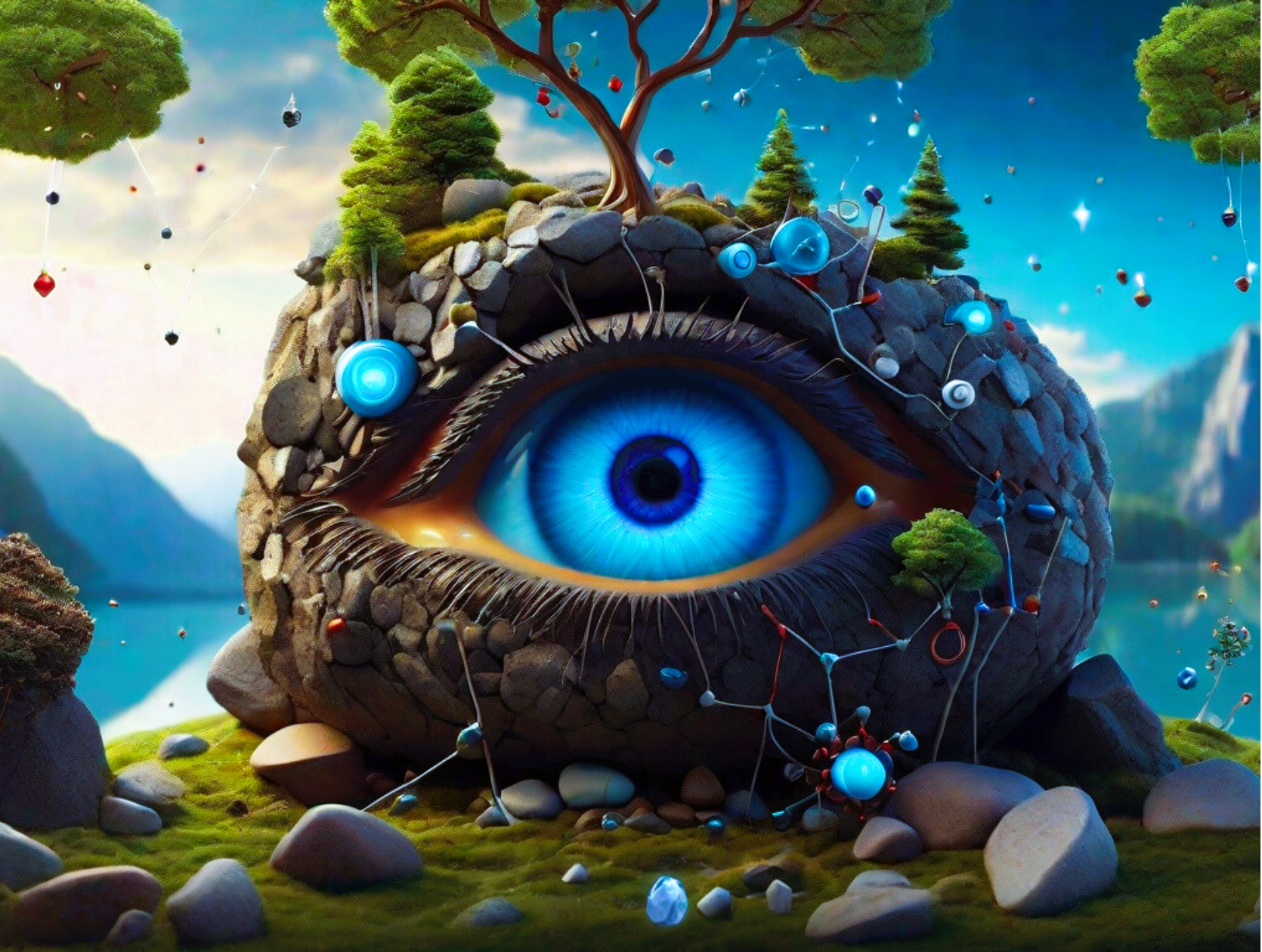Home/sci-fi
🎧 Listen this Article Now
Finally Quantum theory proves that evrything around us has life
🖍️Aurosish Rout , 18th February 2023
Text-color
Text-style
Text-size

Home/sci-fi
🎧 Listen this Article Now
🖍️Aurosish Rout , 18th February 2023
Text-color
Text-style
Text-size

Hey there, curious minds! Today, we're delving into the mysterious realm where science meets philosophy.
Today we came up with an idea where the concepts of panpsychism and wave function collapse in a double slit
experiment proves that everything around us has life or consciousness . Get ready to explore the intriguing
intersection of consciousness and quantum mechanics!
Panpsychism, a mind-boggling theory, proposes that consciousness is a fundamental property of matter, similar to mass and charge. It proposes that even the tiniest particles, such as electrons and quarks, possess some level of consciousness.

However, it does not imply that electrons or rocks have human-like thoughts or emotions. Instead , it posits that consciousness exists in various degrees Simple entities might have rudimentary forms of consciousness, while complex systems like the human brain exhibit highly developed subjective experiences.
Now, let's venture into the world of quantum mechanics. The double-slit experiment is a cornerstone of
quantum physics. Imagine shining light or shooting particles, like electrons, through two slits onto a
screen. What you'd expect is a straightforward pattern, right? But that's not what happens. Instead, the
particles create an interference pattern, indicating wave-like behavior. Odd, isn't it? Here's where it gets
even weirder: when you measure or observe these particles by a measuring device they behave like particles,
not waves. This shift from wave to particle behavior is what scientists call the wave function collapse.
A measurement in the context of quantum mechanics refers to any interaction that provides information about
the state of a quantum system. It could be a measurement device, an experiment setup, or any other physical
process that interacts with the quantum system. When a measurement is made, the wave function of the quantum
system collapses into a definite state.

Most scientists and physicists believe that when a measurement device interacts with the quantum system of
an electron, the electron's wave function collapses into a definite state. But why does this happen? There
is no specific practical explanation for this question
So, our idea is this: according to panpsychism, electrons have some degree of consciousness. When a
measurement device interacts with its system, consciousness emerges in the electron, akin to the way our
brain operates (as in the Orch-OR theory). The electron becomes aware of the observing device and changes
its state from multiple states to a particular state.
As we mentioned before, small particles like electrons have a limited degree of consciousness. This is why
they are only aware of the measurement device observing them, not of us (humans) observing the whole process
As everything in this world is fundamentally made of electrons, we can say that everything we see around us
has some level of consciousness, from a piece of wood to a random stone
.png)
If you want to test this with real-life objects, let's begin. Since these objects are more than 1000 times
bigger than electrons, they may have enough consciousness to be aware of human observation, or perhaps any
conscious being
Okay, hold a book or any object in front of your face. Now, you can see only one side of the book, the side
in front of your eyes. You can see this side because light reflects off it and enters your eyes, allowing
you to perceive it. But what about the other side? Since it's a 3D object, you can't see both sides at the
same time ,
So, at this particular moment (when you are holding the book), you can easily describe the color, shape,
structure, and other features of the side facing you. But guess what? You can't determine the color of the
other side of the book or its shape or structure
The other side of the book remains in an indeterminate state until you turn the book and observe it
directly,
Just like electrons, which exhibit both wave and particle nature, the electrons on the other side of the
book are not in a particular state at that moment. However, when you turn the book to that side, as
reflection occurs, its wave function collapses, and it changes its state to a particular state.

And there you have it, a glimpse into the enigmatic world where consciousness and quantum mechanics
intertwine. Panpsychism offers a fresh perspective, challenging our understanding of the mind and the
universe. The double-slit experiment, with its perplexing results, hints at a deeper connection between
observation, consciousness, and the behavior of particles. As science and philosophy continue to dance on
the edge of the unknown, we're left pondering the profound mysteries of existence.
So, dear explorers, keep questioning, keep wondering, and keep delving into the uncharted territories of
knowledge. Who knows what other secrets the universe might unveil, waiting to ignite our curiosity and
expand our understanding of the cosmos. Happy exploring
THANK YOU FOR READING ❤️
Leave us a message